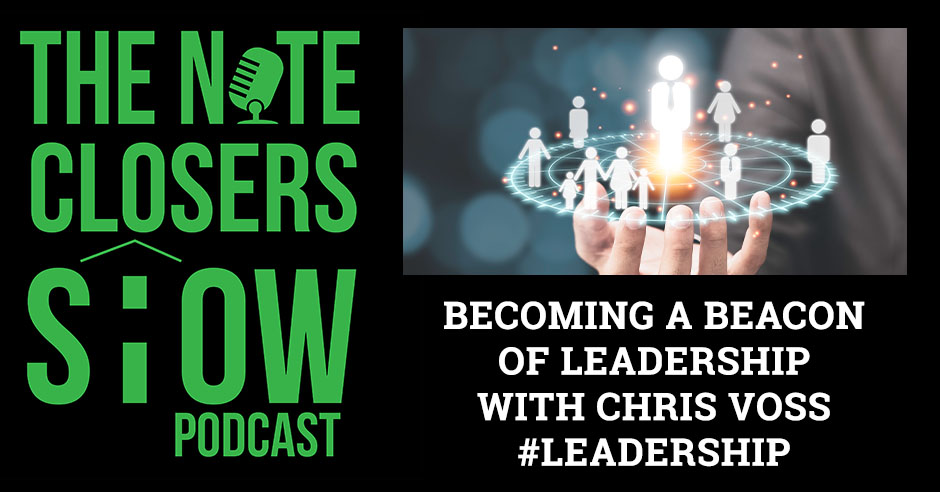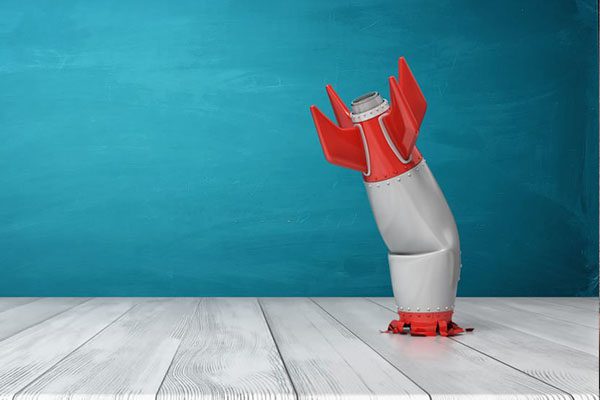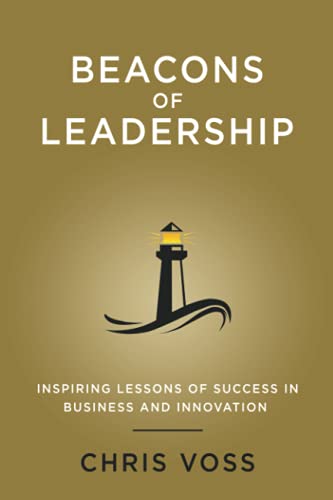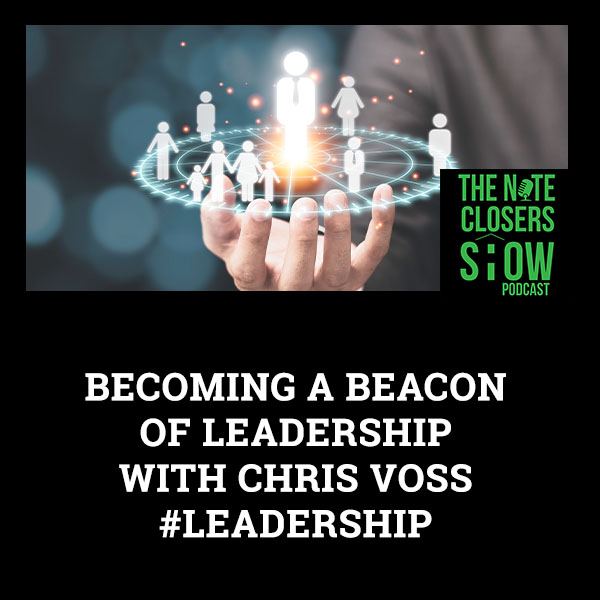
What does it mean to be a beacon of leadership in today’s world? On this episode of the Note Closers Show, Scott Carson sits down with fellow podcaster and author Chris Voss. Chris talks about his new book, Beacons of Leadership. Chris shares why he wrote the book and why the principles he wrote about are something everybody needs to know and implement. Tune in and learn how you can be a beacon of leadership in your industry!
—
Watch the episode here
Listen to the podcast here
Becoming A Beacon Of Leadership With Chris Voss #leadership
I’m so jacked up for our special guest. Before we got rock and rolling, we are talking mortgage industry, foreclosures, REOs, and the hay days of 2008. This guy is a beacon out there for entrepreneurs and CEOs. He ranks in the Top 50 Recognized Host out there by Forbes Magazine. He is the host of The Chris Voss Show. He’s an author, consultant, speaker, and avid YouTuber. He has won numerous awards across the country. We are so honored to have this serial entrepreneur of 35-plus years. Welcome, Chris Voss, to the show.
Thanks for having me on the show. I appreciate it.
I am available if you need me to come out and announce you before you walk into any room. We connected on LinkedIn initially as I like to connect with other entrepreneurs and business podcast leaders. I saw that you had the book coming on. I was like, “This is a great topic for what our audience is dealing with.” Many of our real estate investors are working part-time and they are in a side hustle. They are trying to scale their business and do some stuff. A quick look at your book and everything like that, these are principles that everybody needs to know and implement. Do you want to talk a little about how you got to where you are at? You went through some turbulent times in the past as we all did.
At about eighteen, I became an accidental entrepreneur. I work with my dad on the sub-contracting business through my youth in the summers and stuff. We live in that generation where mom said, “Get the hell out of my house and don’t come back until dinner,” and they will yell for you. Which was good. I think we are a great generation. We go help dad over the summers and whenever weekends and stuff. We learned his business of doing stucco work. I never thought much of it. I hated the business and everything else.
There’s a great story in the book about overcoming getting fired and also getting persecuted. I lived in Utah and it is highly religious here. I was wearing Van Halen shirts as teens do. Here in Utah, Van Halen, Iron Maiden and Judas Priest are considered the great Satan. This manager who’s ultra-religious took a shine on me as a satanic individual. We’re just kids wanting to flip burgers at McDonald’s.
He takes a shine on me and he wants me to come here. I don’t think that’s fair. All the women in the place of God were on here. I get one of those hairnets and unbeknownst to him, he thinks he won his little war, and this is a real issue. He finally catches me one day and fires me for having long hair because God knows that’s a real issue.
I go home and I said to my dad that I was about to go to college on a Pell Grant. He says, “What are you going to do now?” “I don’t know.” He goes, “You can’t stay here.” He wasn’t like the parents of today who lived in the house until they are 40. He’s like, “You got to get the hell out of my house. You got to go get a job.” He goes, “Why don’t you do the old company that I used to have?” This thing that he had mothballed years earlier, but he still has accounts that the builder company. He was like, “Why don’t you go do that?” I’m like, “Sure.”
I started going out and pitching. I’m this young kid pitching these big burly mean contractors. You know how they are especially back in those days. Back in those days, they weren’t the big ultra-builders. These guys were hardcore jerks. Not at all are jerks, but some of them. You are like, “How much time were you in prison?” You are angry. Nowadays you’d be like, “Have you been doing anger management therapy?”
I built a business and started making money. I went from making McDonald’s wages. It was like $3.35 an hour back then to $18,000 a year. When you are a kid living at home as eighteen, you are rich or you think you are. I started my first company and became an accidental entrepreneur.
I didn’t even know I was an entrepreneur. I was like, “It’s cool. I have a car and get to make my own hours.” In the book, I told the story about going back and shaking his hand and thanking him for changing my life, which he did. It’s a good adversity story. From there, I spent the last 35 years building companies, little empires, and all sorts of stuff. I had done 1 or 2 things I guess.
Previous mortgage banker and mortgage broker back in the day. Everything hit the fan in 2008.
It destroyed everybody.
What would you say was the biggest lesson you learned if you look back that you’ve applied for years to help you get ahead these days?
I covered this in the book. Somebody I talked to when I was writing the book and I was in some struggle points is one of the authors that came on my podcast. We have all the brand-new authors that come on my podcast. She told me a story about how she had written a book. One day she met this gal at a book signing or something like that, and the gal told her that she had been in prison. She found her book in prison, and it changed her outlook on life and influenced her to be a better person. It turns out all the women in the prison had been sharing the book and it had been inspiring all of them. They were doing little books and they were using the book to become better people.
She said, “I keep a photo of that person when I’m writing now because I realized that’s the person who I’m writing the book for.” One of my friends in England said, “You have to realize there’s a person you are writing this book for that needs this book, and you need to write this.” I talk about it in the book going through the 2008 crash. It wiped out my little empire of companies. It wiped out my business partnership of thirteen years. It wiped out everything. It took away my whole identity. I went from having multiple houses to zero. You start playing games with yourself where you are like, “I don’t need two BMWs. As long as I have one BMW.” I don’t have the BMW now. It was a slide into cathartic time.
You go through that and you realize that you are still that guy. You can still rebuild. What’s the ending line of The Treasure of the Sierra Madre, “You are still young enough to make lots of treasures. You just got to find the next big thing.” That’s what I did and I tell the story of going through that cathartic moment in the book and finding the next big thing. Now I write books and speak, and I got the podcast. I put the website and other things that I do. It’s fun.

Beacon Of Leadership: You have to realize there’s a person you’re writing your book for, who really needs this book. And you need to write this and talk about it in the book.
Who’s your beacon if you are thinking about somebody that you would like to follow or a mentor that you draw a lot of stuff from?
I don’t have a lot of mentors. Probably me. That sounds narcissistic, doesn’t it? I don’t know. I watch a lot of people, but I don’t get into hero worship. I’m careful about that. I’m not saying if you have a mentor or if you have somebody, you are into hero worship. I don’t want to imply that, but I’m careful not to make anybody my demigod. I have a lot of friends who worship billionaires like Elon Musk or other people and stuff.
Right now, what I try and do is I try and collect things. I’m a collector and I keep a library in my head of what I like. There are a lot of people I look to. There are good parts and bad parts to Elon Musk. I talked about Jeff Bezos and Steve Jobs in the books. Steve was an incredible jerk. I have friends that worked on the original iPhone team. They have said so in some of their documentaries. There were some things that he did well. There are a lot of things that some people do that are good. I don’t have anybody that I worship. I take inspiration from everywhere wherever I can.
Everybody puts their pants on one leg at a time. Everybody wipes their ass with multi-ply toilet paper too. In the book, you also talk a lot about having a CEO or entrepreneurship toolkit. Can you explain what that is to our audience?
I realized that a lot of people might be reading this book and they are starting their first business or they are in their first business. They get stuck. I used to buy out companies that would get stuck. The entrepreneur gets stuck. I talk about that in the book, “Here’s some money but get out. You are the problem. You need to go back to McDonald’s.”
Being a great entrepreneur is a learned trait. Only 1% to 2% of them survive past the second year. That’s a hell of a run. It takes a hell of a character to make a lot of money if you have good investors. Even then, you can still fail. It’s a tough road and it’s one of the things that will self-actualize you and make you self-responsible in my opinion. Although I have met some entrepreneurs that lean on their partners pretty hard. It will self-actualize in a way that nothing else will.
When you are an entrepreneur, you live 24/7. You dream business. I used to be like, “Can we dream about girls for a change? The girl in bikini maybe, instead of what I’m doing tomorrow in my meetings and who I’m firing.” I wrote about in the book the toolboxes designed to give people some of the axioms that I used to use. A lot of people, whether it’s Jeff Bezos, Elon Musk or whoever, you have this toolbox you always go to or this framework that you always use. A lot of times you use it. It helps you get successful. It has some rules and regulations or going back to basics. It’s your basic box.
Sometimes you get off those basics. When you get off those basics, the game starts going weird. Maybe you don’t work as hard. Maybe you are trying to innovate too much and you innovate something and break it rather than improve it. Being able to go back through the toolbox, I have gone through some of the different things that are in my toolbox and axioms that I used to use, getting myself reset back to the basics and stuff like that. That’s usually where a lot of entrepreneurs go wrong. They get tweaking way too many things and they get way off target or they are scattered shooting too much.
It’s the whole philosophy from The E-Myth. We all end up working on a variety of different things versus focusing on our strength points. Most entrepreneurs were basic control freaks versus being able to delegate. Learning to delegate is one of the most powerful things that entrepreneurs can do to help them get rid of a lot of that BS that’s timed down their hourly time.
My big thing is innovation and being a visionary leader. I talked about that in the book. A true visionary leader is one that inspires and motivates people. I have always had to be the big mouth. If you are a CEO, you are in sales. You are selling to the employees, vendors or the board. Everybody that you are involved with and all the employees, you are constantly selling them the vision.
You’re getting people to salivate, inspire and fired up, “Let’s go do this.” I talk about that sort of thing. Steve Jobs was getting everybody, “We are going to make a phone. We are going to shove fifteen different items into the phone. The fax machine and the phone. We are going to shove all this stuff into the phone. We are going to do this. We are going to pull it off. We are going to make the greatest phone ever.”
His team was like, “Seriously? We are going to make this work.” Even when they did the announcement, the thing still wasn’t working. They did about 2 or 3 things before the crash. He had this vision and he could get his employees to move mountains for him. He would be like, “We are moving that mountain or we are putting it over there.” His employees will be like, “We are doing it.” I forget the name of the journalist who gave him the moniker that he lives in his own reality field that he makes, a distortion field.
A lot of leaders have that power to inspire people, to get that human condition to go the extra mile. There are leaders that have the whip, “I will fire you if you don’t,” and the meanness of whatever. I talk about in the book what true leadership in my mind is. I talk about innovation, how I innovate it, how I break things down, and how I would get outside of the box. I did a lot of innovations that saved my butt and made me a lot of money too.
Do you see too much change taking place in the marketplace, from the brick-and-mortar offices or businesses to everything being digital and online? What is the number one hurdle that you’ve dealt with in that transition and everything that’s changing the world?
Just understanding the online basics of it. The story I tell in my books is we started brick-and-mortar. In my first company, I started with $2,000. My second company with $4,000. A lot of people nowadays probably go, “I go and start a company.” We had to get licenses. We had to buy office space for three years and sign a contract. We had to sometimes get government licensing. We had to pay for insurance. You had to front everything in doing what you are doing. We also had to make a profit. We weren’t like Twitter or Snapchat where you wait for ten years to make a profit. We are self-funding ourselves. We are like, “We got to make this money back in four months or we are out.”

Beacon Of Leadership: Being a great entrepreneur is a learned trait.
We go through all that, and then 2008 comes and then I have to learn to adapt online. I love being online because it’s so much easier to start a business. I don’t have to wait for the phone line company to come in and install the phones. I got to do a long-distance phone line negotiation deal for the best price. It’s all the nightmare of setting up a business, waiting for the government approval, going through this, hiring the secretaries, and having a front office. It’s going good at $18 a year business basically. It’s so easy and so wonderful. The hardest part is getting above the fray and getting yourself going. To me, it’s so much easier nowadays than it was when I started. That’s for sure.
The barrier to entry is a lot less. As you said, you don’t have to sign an office for three years. There are so many different things. That’s why so many people want to get out of the rat race. We are in the midst of the Big Resignation. People want to go out and do their own thing. Those that are scared of sitting on the fence are holding on because they got benefits. If somebody is controlling those benefits, do you really have benefits in a lot of cases?
I have talked to a lot of people about being entrepreneurs. I’m like, “You got to go back to doing a secure job.” There is a mentality to this business. You are welcome to disagree with me if I’m wrong because I’m always curious about what other people think about this. To me, there is a real personality to an entrepreneur. You’ve got to be self-actualized. Even if you aren’t fully self-actualized, it will self-actualize you. You have to adjust to that because if you don’t, you are constantly blaming everybody for your problems. It’s not going to work out in the long run. You going to run an awful business. Everyone is going to hate you. Maybe make some money. There are the outliers.
For the most part, if you are starting something and you are the investor and you’ve got to make a profit, you’ve got to buckle up fast and get it on, and it’s 24/7. It’s blinding. I remember when I came to Vegas, I started a mortgage company for some Chinese investors. It was so nice to go home at 5:00. I’m like, “I don’t have to worry about losing all the money they invest. This is their problem.” I’m going home. I just show up as a kick-ass CEO. It’s nice but it’s tough. It’s the hardest thing you will probably ever do. Probably next to having a kid. I have never had a kid. It sounds like that’s a lot of sleep loss. For me, it’s the hardest thing next to having a kid. For some people, probably it’s truly not quite as hard as having kids.
They always say that it’s your baby. One of the mistakes we see a lot is a lot of the entrepreneurs go down with the baby versus, “This is a sinking ship. Let me move on to something else.” You got to have that mentality. A lot of times, it’s the passion projects that drag us down.
I talk about that in the book too. I give a lot of entrepreneurial advice. At one point, we used to white knight to buy our businesses. We would run an ad in the paper saying, “If you are in trouble, we loan money.” We did and it was amazing. You would get a blizzard of P&Ls. If you walked into any company up the street like any strip mall and said, “Can I see your P&Ls and your books and stuff?” They would be like, “Are you out of your freaking mind?” We get everything you could ever want to know about the business, send it over to us in about five seconds, and then you could sit and cherry-pick what you want to invest in.
A lot of them were folding businesses because we had a whole bunch of companies. There are 21 different corporations that we had started at one point. We would play with things. They would start something, see if it would get legs, and send some people to go play with it. Sometimes you shut it down. Sometimes it would become the jewel in the crown.
A lot of times, we find these companies that we could buy out. They are either asset-rich or cash-poor. You fold them in. You can do probably the same with mortgages. You find those things, but a lot of entrepreneurs wouldn’t change their business model. They wouldn’t adapt to changes. There were a million different things.
I talk about it in the book to give people insight into what entrepreneurs that failed do wrong. A lot of times, they have one business model that they start their company with. They ride that all the way to the bankruptcy court. They won’t give it up in the end. They are like a little raccoon holding onto it going, “We are not going to give this up.”
That shiny object, even though you bang them their heads. We have some friends that buy a lot of businesses and we buy a lot of distressed notes. Sometimes we are like, “You should not be dealing with that house right now. You can’t afford it. Let’s work with you to get you out of this.” We dealt with a borrower and I said, “You can’t afford this. I’m giving you an out. I will take over your issue. I will pay the taxes you owe. I will take the property over. Just walk away.” People sometimes are blind like an ostrich. They got their head shoved down in the sand trying to hide from their issues.
Sometimes when they see you show up, they are like, “There is an opportunity here. I can still make this work.” You are like, “No,” because we would always buy people out. They always want to be, “I want to stay with the business. Give me the money and stay with the business.” “No, because you are the problem.” You have to identify that if you are the CEO or you are self-employed, you are the problem.
The one thing I loved about being a CEO and running companies is the buck always stops here. I make all the final decisions. There’s nobody that I can be like, “It’s Joe’s fault.” I should probably hire Joe, just so I can blame him. I blame God or the universe or I don’t know. I make something up. No, I don’t. I put a lot of that in the book. A lot of inspiring stuff and my stories of overcoming adversities.
In the book, there are some ways that I look differently at things and those are important. I had some people who are like, “Why don’t you tell a story about how you approach school and what was going on with your schooling and stuff?” Partially, I tell people, “You don’t need to fall the rails and everything.”
I talked in the book about the nine-point out-of-the-box method or exercise that I learned from Lou Tice back in the day. I didn’t realize I had been doing it all my life but I was. When I saw it, I identified what it was. I was like, “This is how my little box brain works.” I approach it with everything, relationships and life. Many people have this tunnel vision of what society tells them. Your dad tells you to go get a job. You need a job. You are like, “This is all there is. A fight club.”
What’s the next thing? Get married and have kids. You’re just like, “Who made this program because this program sucks.” I’m not happy. I write the book to help entrepreneurs with my little tips and tricks, and things that I used to get me out of a jam, and some of my experiences. Learning to think outside of a box and have a paradigm where I can get outside of things, look at things and go, “Why do you do it this way?” People are like, “That’s what everyone did.”

Beacon Of Leadership: Sometimes you get off the basics and the game starts going weird. Maybe you don’t work as hard, or maybe you’re trying to innovate too much and you innovate something and break it rather than improve it.
Teaching people to look at life, look at the social constructs that are set before them and go, “Do I really want that? What is this?” Picking stuff up and going, “Why do we do things this way? Why don’t we all get married? Why didn’t we all have kids? Why do we do this car thing? Question everything. What is religion? What is atheism? What is this, that, and the other? Why? The most important question is why. Why do we do it this way? Question everything. Question the questions.
That helps me in my business where when something isn’t working or I need to innovate something, it’s like, “We have a good business model going here, but we have to cut overhead or cut cost.” How can we innovate this process right here from either A to B or customer service? Whatever it is, how do we squeeze this so that we can get some more profit out of it and better higher efficiency?
Being able to sit down, especially when I built the model as a business owner, because that’s the thing I talked about. A lot of business owners get stuck with their model and they ride that stuck in the ground. I realized that I need to constantly look at my models to go, “How can we improve this? How can we adjust this?” We adjust them for what’s happening, especially in the market forces. One day you got a great business model, the next day your business goes because Amazon pulled AI on something.
We have seen that. You look at the innovation of Uber, Airbnb or Vrbo. People look at the normal industry. How can we change this up to make this work? You mentioned Elon Musk and what he did originally with PayPal. It was changing the way. It’s the same thing with the digital currency taking place these days.
It’s the same thing with real estate investing. How can we do it with blockchain? How can we do partials and stuff like this? Being the CEO, getting out of your way to approach things, and being open to others’ opinions or outside influences looking at the same thing, it’s like looking at a Pollock painting. We all see the painting, but it’s a different view that can add a different opinion of things.
That’s a great analogy. It’s like those walking horse thing you see on the internet or do you see the horse walking. Looking at different things, I constantly questioned everything as a child. I looked at life. I was an introvert and I was like, “Why do we do this way? Everyone seems unhappy doing this.” Doing that with your business or even designing your life, especially for men who wake up with their midlife crisis. Men mature later, but then we also hit our peaks in our 40s and 50s with income and having our crap together finally.
We wake up and we go, “I’m the guy here.” We go through our midlife crisis and we realized that we have probably been stuck in a social program for twenty years. For some people, that’s good. For some people, that’s bad but you want to make sure it’s your choice. As you look at your businesses, you want to constantly be asking questions even after you built them.
If you are making $1 million every five seconds in your company, great. There’s probably something you can improve. You’ve got to have this mindset that I talked about in the book that it constantly needs to be improved. Everything can be improved. I never thought you could improve paperclips. I’m like, “That’s done. People got paperclips,” and then I saw people come out with painted paperclips. There are grooved paperclips that can clip and hold easier. There are a million different versions of paperclips.
In a million years, I never thought you can innovate paperclips, but you can innovate anything. My last eight wives innovated me out of their divorces. I’m just kidding. I had people write me on my show and they are like, “How many divorces do you have?” In one joke it’s 7, 9, 8. I haven’t been married at all. That’s nice, but that’s the beauty of the joke.
Speaking of the podcast, you’ve got well-mixed guests on the show. Who’s 1 or 2 guests on The Chris Voss Show that stand out to you that you heard something from that made an impact on you?
There are so many great guests we have on the show. One of the biggest impacts was having Eddie S. Glaude Jr. on. He’s an incredible author and brilliant mind. I believe he’s at Princeton. Eddie came on and he introduced me to James Baldwin. I’m a huge fan of great orders and debaters. Chris Hitchens is probably my number one guy. I love his brilliance and his use of words, and also his ability to whip people with his wit. He could destroy you speaking so elegantly right in front of you in the debate and you be like, “Screw me.”
Getting acquainted with James Baldwin, I was amazed at the quality. We had a discussion on Eddie’s show about Black and White issues, racism, and a lot of the things that James Baldwin talked about you could do. What was interesting was that a lot of White people write to me after the show and say, “Your approach with Eddie in talking about these things, your openness and your willingness to be honest and talk about things changed my mind about racism and some of the issues that I have. Seeing that there’s another way to approach this without being like, ‘I don’t know about that.’” It was great to have him on. He was brilliant.
I can’t think of a second person I have had on the show. There had been so many great authors we have on the show. A lot of them are in the New York Times, CNN anchors and correspondence, MSNBC, and Wall Street Journal. You name it. We have had them on the show. Pulitzer Prize-winning people. They are all brilliant.
My big boner is I get to sit there and get a front-row seat. They have spent 10,000, 20,000, and 100,000 hours doing their books, and I get to sit in the front row and ask them all the questions. The other beautiful part I have is I get a whole hour with them. Normally, when I see them on TV, when they are doing their book runs, they get three minutes.
With Carole Baskin, we got some deep questions about her. Peter Struck, I had the FBI on the show. We had a number of FBI people on the show. We tried to get, whoever the director was, the last director. Both of them were on the show. What was interesting is sometimes building a show where no one has asked them the questions that I have seen on TV because they are doing that three-minute blip. A lot of times, I get to humanize them or find out more and dig more. The Carole Baskin show is interesting. I shut up and let her run for about twenty minutes on where her husband was.

Beacon Of Leadership: You have to build an audience. Even when you deliver a good product and have the greatest practice, but do not have an audience, it doesn’t matter.
Is he in Panama or under the tiger fence?
I let her talk. There’s an old Shakespeare saying, “Thou does protest too much.” There are a lot of theories she has. She was wonderful and incredibly nice. I have no dog in the fight. I don’t know. I’m not the FBI. It’s not my job, but it was interesting.
It made for an interesting episode, one of the ones I was listening to.
Did you hear the ending too? The ending is the best part.
You have to stay for the entire time to get it. It’s so well worth it.
The ending is the money. I didn’t even see the ending coming. I was surprised. That twenty-minute span where I shut up and I listened. We went into that show with a lot of pre-planning because I’m like, “I don’t want to make her a hero.” I didn’t even watch the show and I made the decision. I announced on the show that I made the decision not to watch the show because I didn’t want to be biased. It does spin around a dark light evidently. This is the way they work. They have to make a group of people. We have had a wonderful group of people on the show and keep doing it. For any new book that’s being published, we try and get them on the show. It’s great. Some of the authors and brilliant minds we have on. I learned so much. It’s like being in college. It’s awesome.
That’s the beautiful thing. It’s what I love about podcasting. You get that hour’s time. People hour time is $10,000, $15,000 or sometimes $50,000 of value. Being able to ask the questions that people aren’t asking on a regular basis. You do get a lot more insight into the mind of people versus them having to regurgitate like a penguin.
We have had scholars on the show. There are a lot of scholars on the show that are brilliant. We have had people that have been counseled from the centers of foreign policy. We had a lot of people that have worked in the White House for lots of different presidents from both parties. We had council presidents do things. An extraordinary group of people and brilliant minds. A lot of them work at colleges and the historical context. We had Susan Page on once. She was the one who was the interviewer of the vice-presidents when they ran for office. These are people that are high-end news Pulitzer Prize-winning people. It’s an honor to be able to sit with them and pick their brains.
What would you say is the key to attracting great guests and talent to be on your show? Is it just being diligent and following up? What has been your magic sauce?
Building a good show. I learned a long time ago. I have so many people that call me up and they go, “I was on your podcast. It seems easy.” It’s not easy. Everyone is like, “Just get a mic, and then it’s done.” You’ve got to build an audience first. I have people write to me like, “I want to do podcasts.” The first thing out of their mouth is, “How do I make money doing this and get sponsors?” I’m like, “You have to get an audience first. You have to build it first, then they will come.”
I knew that a long time ago when I started social media. I didn’t know what I was going to use it for, but I knew I needed an audience for that. If I want to change my mind on what it was for, I still need an audience that would go with me, “He wants to go over there now I’ll follow.” I started building a show and doing the work. The first year, no one talked to me, and no one gave me any feedback. The only reason I knew people were listening was for downloads and Google analytics for people who are clicking and going to the website. I’m like, “Somebody is paying attention to this crap.”
The first year, it seemed like I was just talking into the ether, which I was. I was drinking back then. You have to build the audience. You’ve got to build it. You’ve got to get good at what you do. You’ve got to study to be a good host. Carson is a great host. If you sit down and spend time to understand him as a host. You got to learn to be a good host. You got to learn to put on a good show. You’ve got to go through it. It was the 10,000 hours thing. You don’t have to go that long before you can start building a good show, The problem is great guests aren’t going to book on a show that no one is on and no one has heard of.
You’ve got to build a good show. You’ve got to encourage people to get on it. You’ve got to start getting some new names and building it out from there. You’ve got to develop relationships. Those are hard, but if you don’t have the audience no one cares. It doesn’t matter. You are not going to get great people on the show. You might get 1 or 2, but these are people that have nothing better to do. Even then, in my show, I get people all the time.
We are doing all the stuff. We have tried to get Bob Woodward on several times for his books and they send us his books, which is about all they give us. We can’t get him to book on the show because he’s a big A-list dude. He’s going to do CBS and NBC. He’s got it done. He’s usually writing a book every six months. We almost got him. We were close. We are in negotiations. You just try. The more good guests we get, the more guests we get.
I agree 100% wholeheartedly with this. You have to treat it like a business. You have to build an audience. You have to deliver a good product. If you got the greatest part of the world but don’t have an audience, it doesn’t matter. You have to market it and keep sharing what you are doing and grow over time. Podcasting is not a get-rich-quick by any means of the imagination. You look at the outliers of Joe Rogan. People don’t realize that he has been doing that for years and how much he went through being a comic or hosting other things before he got to where he’s at. It’s great to see something like that, but it’s also interesting to see how the cancel culture is trying out to cancel them for having an opinion, and then trying to dig up bad stuff from the past.

Beacon Of Leadership: Beacons of Leadership: Inspiring Lessons of Success in Business and Innovation
It’s interesting how things are unacceptable. He works for a corporation. When you work for a corporation, you have liability. Welcome to America. You will see you and you have all sorts of problems. You got to meet those metrics. That’s the way capitalism works. If you don’t like a product, you stop buying it, you walk away.
Whether it’s customer service or someone is using the N-word. One of the great shows that I saw because I never fully understood why you shouldn’t use the N-word. I knew it was bad. When Bill Maher used the N-word on his show, I believe it was Ice-T the rapper come on. It’s a great segment for anyone who’s wondering why you shouldn’t use the N-word.
It’s a great segment to explain why that’s important for all the history. We had great people on the show that talked about racism and Black history. We are sensitive to it because if you understand the history of this country, it’s pretty ugly what White people have done. There’s a thing there. We had a guest on our show talk about free speech. It’s interesting. He thinks free speech only works for the right side. I couldn’t get him to comment on a book burning. It’s interesting how people look at one side and they go, “That’s bad,” but the other side is like, “It’s fine for them.”
This is one of the out-of-the-box issues that I have. I can look at both sides and everything, even though I’m aligned to one side and go, “We are all doing some hypocrisy stuff here.” That’s what I think about that, but he does work for a company and that company gets sued. The company loses products when they don’t buy your product. That’s the way it is. Whether it’s over the N-word or maybe you don’t like the flavor of the milk. Maybe their customer service sucks. You take your money elsewhere. That’s the great thing about capitalism.
Good stuff there, Chris. The Chris Voss Show, I highly encourage you guys to check it out. He dabbled a few names of some of the amazing guests he has on there. While you are out it, you want to check out his book Beacons of Leadership: Inspiring Lessons of Success in Business and Innovation. Chris, thank you so much for coming on here on our show. You’re a busy guy. I know how busy your schedule is. I’m honored to have you.
I’m honored to be on your show. Certainly, wonderful. Thank you. You’ve been a great host. Thank you very much.
Everybody, an opportunity for you. Go out and listen to the podcast. Get the book. You can get it online and download a copy. You can also order a hardback copy. It’s well worth the read. Chris is a great storyteller and there’s something for everybody in there as an entrepreneur or you are thinking about going into business. It’s a great read for you. You can truly be a true beacon of leadership in your business. Go out and take some action. We’ll see you all at the top.
Important Links
- The Chris Voss Show
- The E-Myth
- Eddie S. Glaude Jr. – The Chris Voss Show – Begin Again: James Baldwin’s America and Its Urgent Lessons for Our Own by Eddie S. Glaude Jr. – Past Episode
- Carole Baskin – Carole Baskin, Founder & CEO of Big Cat Rescue & Tiger King Star on The Chris Voss Show
- Susan Page – The Chris Voss Show Podcast – Madam Speaker: Nancy Pelosi and the Lessons of Power by Susan Page – Past Episode.
- Beacons of Leadership: Inspiring Lessons of Success in Business and Innovation
About Chris Voss
 Rated in the top 1.5% of podcasts by ListenNotes.com‘s Global Rank – This podcast is one of the top 1.5% most popular shows out of 2,709,411 podcasts globally. You can see the top media guests who appear on the show as well as major TV, News & Media almost daily at: https://bit.ly/3juLbFc The Chris Voss Show is EXCLUSIVE Top-Tier Profiles of regular TV, Radio, Author interview podcast that has almost 900 episodes The show is flooded with the hottest top authors, and books newly released by large publishing houses. Simon & Schuster, Penguin Random House, Hachette, Harper Collins, Macmillan, etc. Check out his 2 latest books BeaconsOfLeadership.com & ChrisVoss.club
Rated in the top 1.5% of podcasts by ListenNotes.com‘s Global Rank – This podcast is one of the top 1.5% most popular shows out of 2,709,411 podcasts globally. You can see the top media guests who appear on the show as well as major TV, News & Media almost daily at: https://bit.ly/3juLbFc The Chris Voss Show is EXCLUSIVE Top-Tier Profiles of regular TV, Radio, Author interview podcast that has almost 900 episodes The show is flooded with the hottest top authors, and books newly released by large publishing houses. Simon & Schuster, Penguin Random House, Hachette, Harper Collins, Macmillan, etc. Check out his 2 latest books BeaconsOfLeadership.com & ChrisVoss.club

